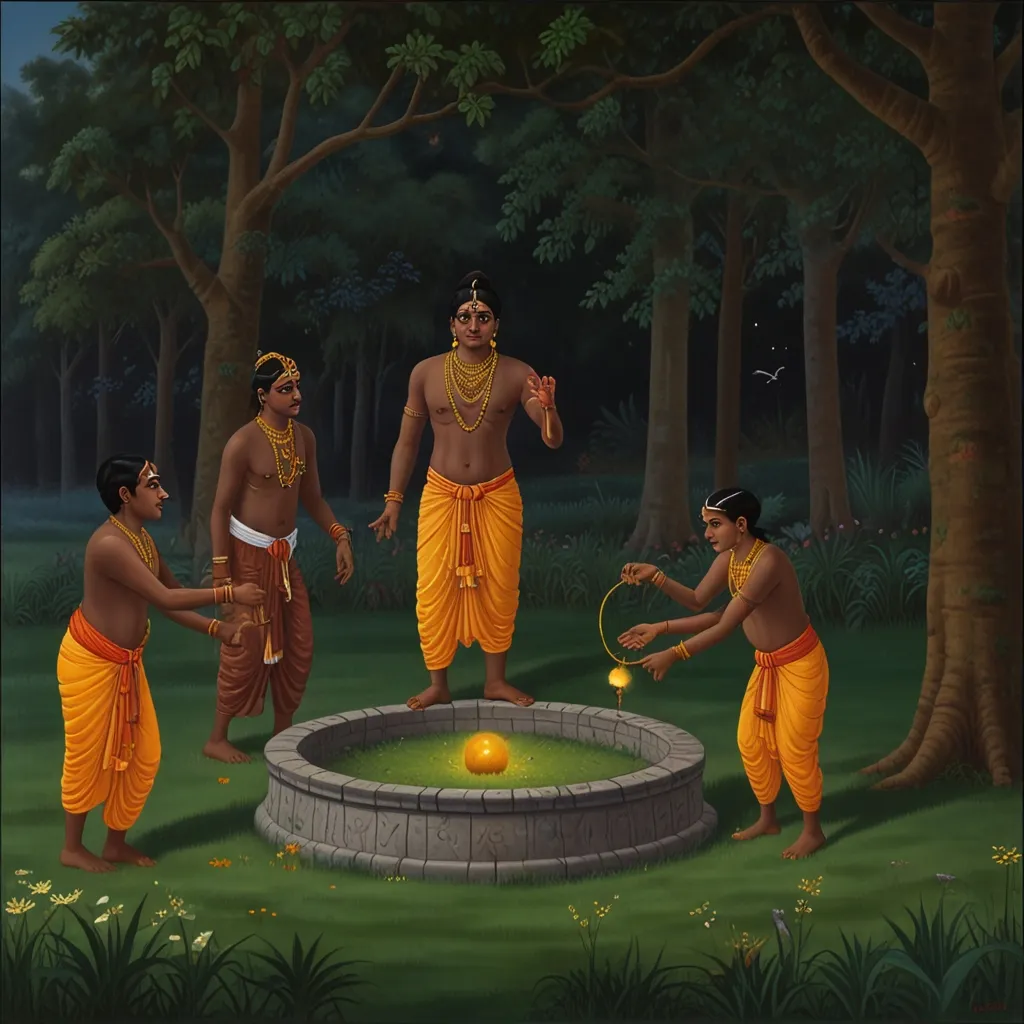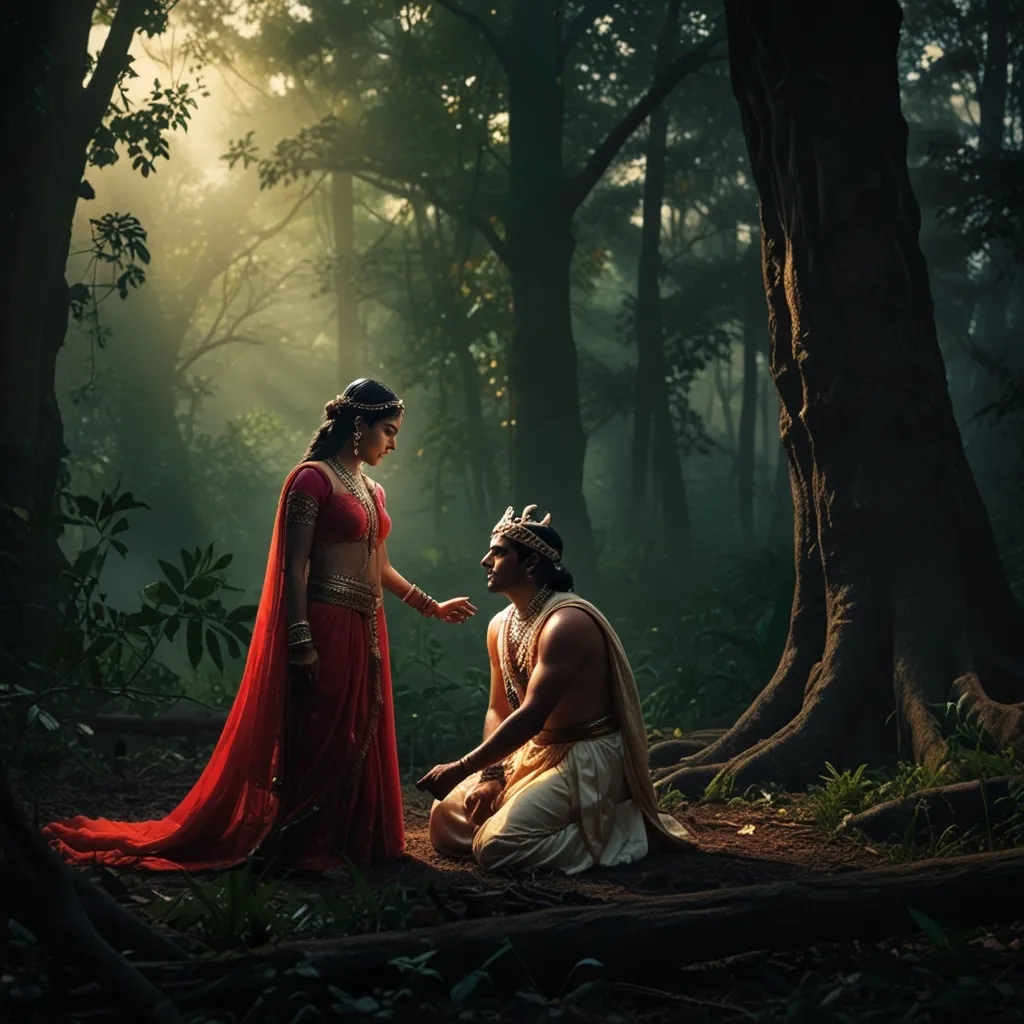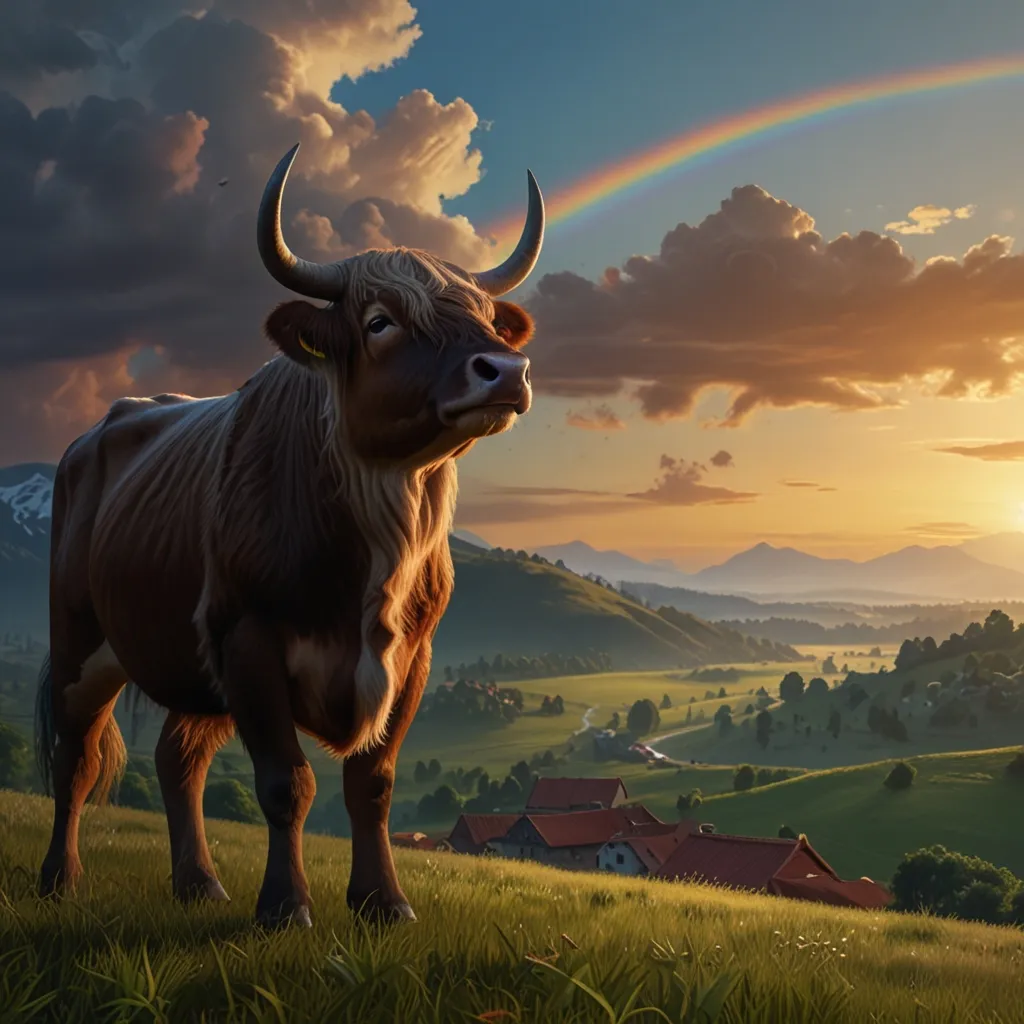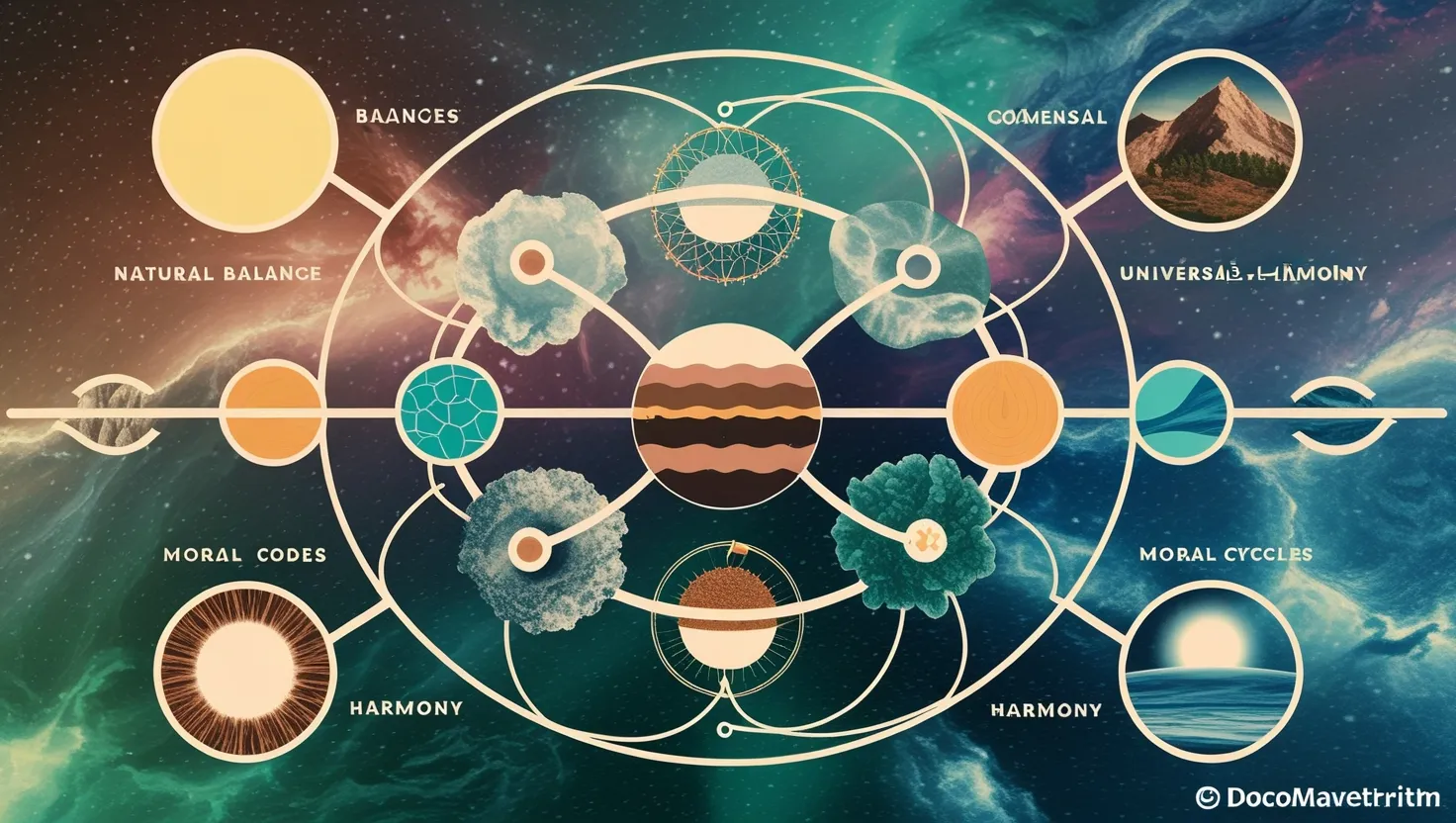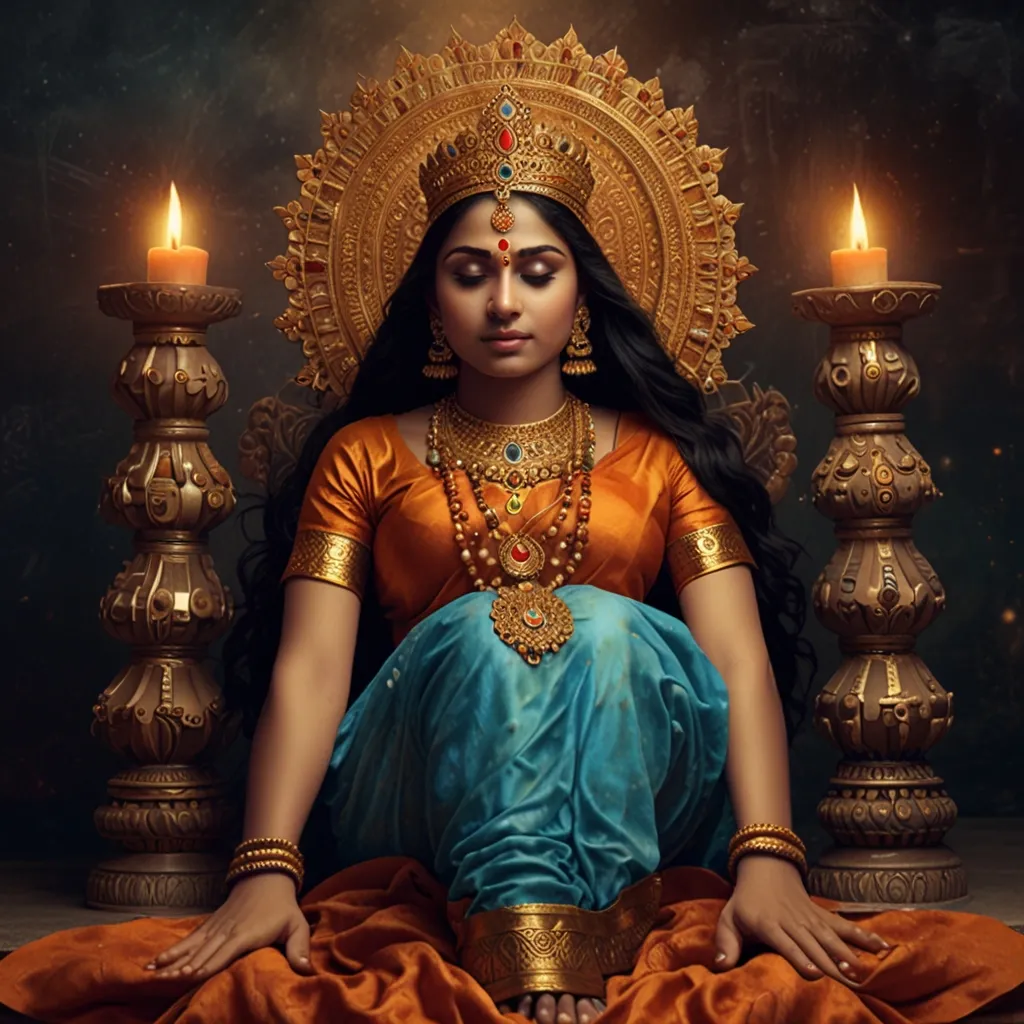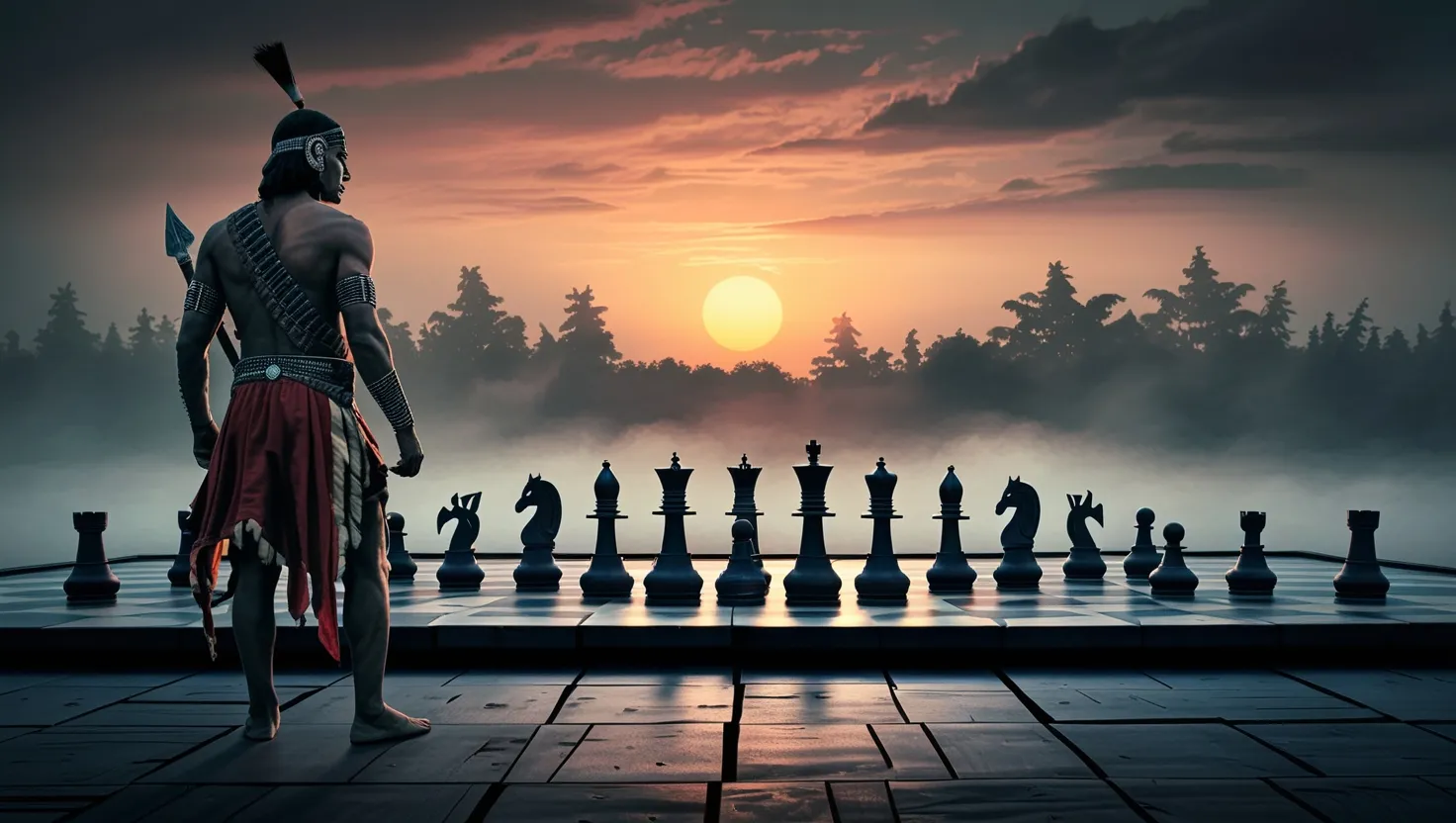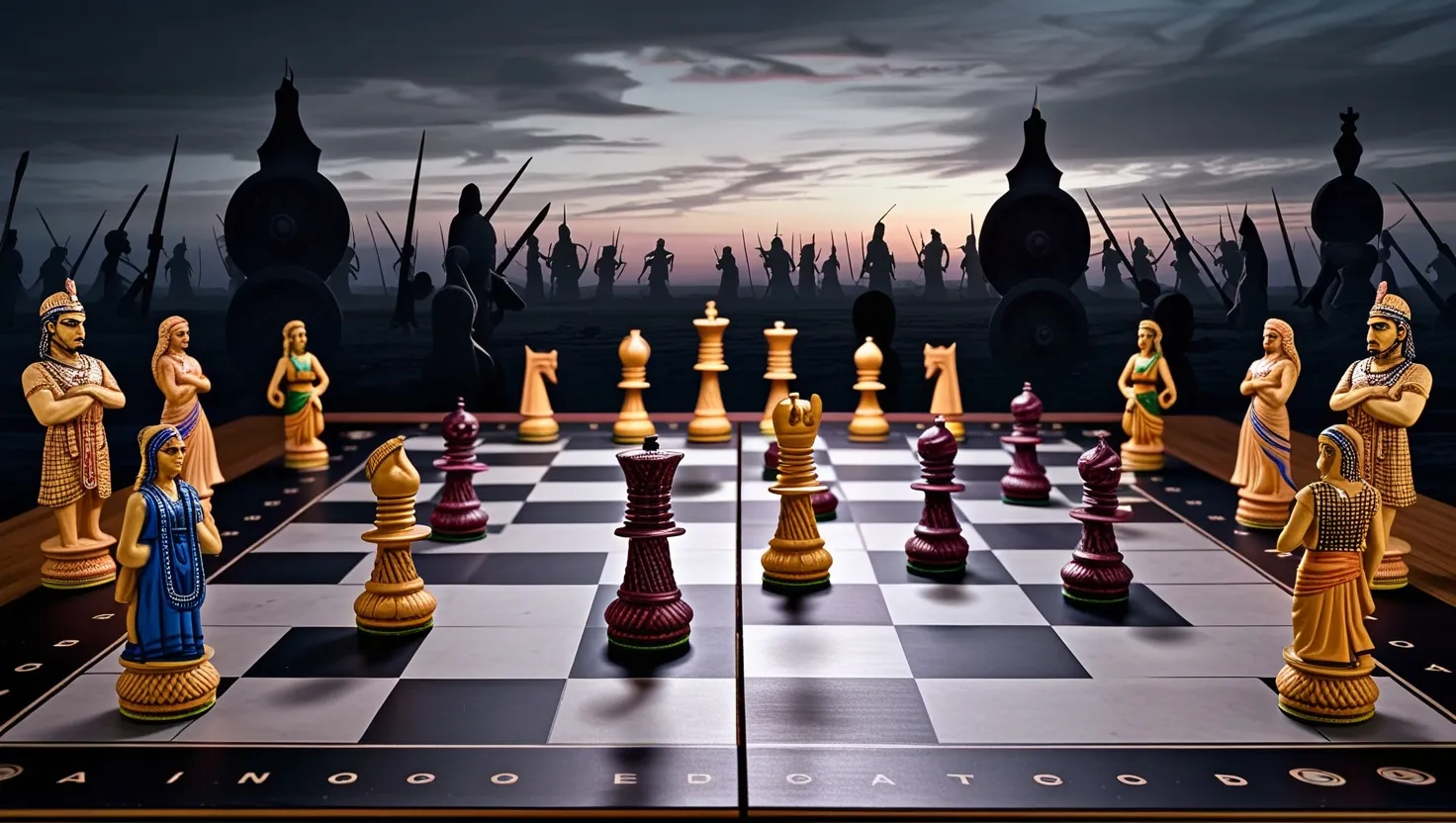In the ancient kingdom of Hastinapura, there was a story that shaped the destinies of the Kuru princes. This was an era when mastering the art of warfare wasn’t just about survival; it was a way of life. At the heart of this tale is Drona, a brahmana with unparalleled skills and remarkable determination.
Drona’s journey to becoming the royal teacher wasn’t straightforward. Once, he was tight with King Drupada, but their friendship took a dark turn when Drupada, full of royal arrogance, brushed him off, saying that a king could only be friends with another king. That humiliation cut deep, leaving a wound that would drive Drona to seek revenge someday.
Eventually, Drona found himself in Hastinapura, seeking refuge with Kripa, a wise and kind man. Despite their modest existence, Drona’s son, Aswathaman, occasionally showed the Kuru princes basic weaponry skills. Still, it was Drona’s own extraordinary demonstration that truly changed things.
Picture this – the princes, just kids, were having fun near a well when their ball fell into it. Try as they might, they couldn’t get it out. Then came along a lean, dark-skinned brahmana. Intrigued, the princes asked for his help. Drona smiled, tossed his ring into the well, and used blades of grass, empowered by his mantras, to create a chain that amazingly pulled the ball out. He then shot an arrow that pierced his ring and came back to him. Pure magic.
The princes, blown away by what they’d just seen, wanted to know who this mysterious man was. Drona simply asked them to describe him and his actions to Bhishma, who would recognize him. When the princes eagerly recounted the incident, Bhishma immediately knew the brahmana was Drona. He recognized that Drona would be the perfect teacher for the Kuru princes and invited him to the palace.
Welcomed with great respect, Drona agreed to train the princes but had a precondition. He wanted a promise that they would fulfill his desire once they mastered warfare. Most of the princes were hesitant, but not Arjuna. He promised without thinking twice, which touched Drona deeply, and he embraced Arjuna, tears of joy streaming down his face.
Under Drona’s expert guidance, the Kuru princes—including the Pandavas and the Kauravas—mastered the art of warfare. But it wasn’t just about physical skills. Drona also taught them about celestial weapons, considered divine. Among his students was Karna, the adopted son of Radha, whose jealousy of Arjuna often stirred strife. Duryodhana, who had a festering hatred for the Pandavas, found an ally in Karna.
Drona’s talents weren’t reserved for just the Kuru princes. Young royals from other clans, including the Vrishnis and the Andhakas, also sought his wisdom. His reputation as a master instructor spread far and wide, turning his students into some of the finest warriors of their time.
As the princes honed their skills, Drona began sending them on various missions to test their prowess. One notable mission was targeted at Drupada, the same king who had once humiliated him. Drona sent Karna and Duryodhana first, but they failed miserably. Then came Arjuna, who conquered Drupada and brought him and his minister to Drona as captives.
That encounter with Drupada was a heavy moment. Drona told Drupada that he had conquered his kingdom and offered him half of it, making them equals once again. While Drupada’s pride took a hit, his hatred for Drona only deepened. He vowed to one day get his revenge, even performing penance to have a son who would kill Drona and a daughter who would marry into a family that could help him achieve this vendetta.
Drona’s role as the royal teacher marked a new chapter in Hastinapura’s history. His teachings molded future warriors and set the stage for the epic battles that would soon unfold in the Mahabharata. The tale of Drona is a compelling narrative of human complexity, driven by a thirst for both revenge and the joy of teaching.
It’s a story that keeps you thinking, even after centuries, about the lengths people go for vengeance and the relentless pursuit of one’s calling. Drona might have started his journey seeking retribution, but he ended up shaping the destinies of the greatest warriors, proving that life’s paths are always twisty, and full of unexpected turns.
